2016 Pivot Mach 429 Trail Pro XT/XTR 1x
(discontinued)
| Where To Buy | |||
|---|---|---|---|
Free shipping on orders over $50 (continental U.S. only).
International shipping available. Some exclusions apply. |
|||
Free shipping on orders over $50 (continental U.S. only).
International shipping available. Some exclusions apply. |
|||
Reviewed by Brandon Turman and Steve Wentz // Photos by Lear Miller
What would happen if you took a successful 29er cross-country bike and mixed in a little inspiration from a long-travel 27.5 cousin? That's exactly what Pivot did with the Mach 429 Trail, which takes their well regarded Mach 429 SL cross-country rig and mixes it with some capability from the Mach 6 enduro bike, ultimately ending up with a very efficient ride that's better suited to getting rowdy on the trails. Updates include a small bump up in rear travel, a new linkage, components worthy of rougher terrain, Boost axles front and rear, a nearly two-degree slacker headtube angle, and quarter-inch shorter chainstays. We put the special blend through the wringer at the 2016 Vital MTB Test Sessions to find out how well it captures the best of both worlds.

Highlights
- Carbon frame
- 29-inch wheels
- 116mm (4.6-inches) rear wheel travel // 130mm (5.1-inches) fork travel
- dw-link suspension with mid-travel linkage design
- Cold forged alloy links with Enduro Max cartridge bearings
- Tapered 44/56mm zero stack headtube
- Mix of external and internal cable routing
- Rubberized leather downtube and swingarm protection
- Post mount rear disc brake
- Removable mount compatible with E-type Shimano side-swing 2X front derailleur
- Press fit 92 bottom bracket with ISCG05 mounts
- Boost front and rear axle spacing
- Measured weight (size large, no pedals): 27.7-pounds (12.6kg)
- MSRP $5,629 USD
Comparing the Mach 429 Trail to the Mach 429 SL, you'll notice the upper linkage looks quite a bit different. Pivot is now using what they call the mid-travel trail linkage to deliver the bike's 116mm (4.6-inches) of rear wheel travel. It uses the same lower dw-link as the Mach 6 combined with a compact new upper linkage that provides more progression and improved small bump sensitivity over the Mach 429 SL - two key attributes for a trail bike claimed to be able to do it all.

The FOX Float DPS (Dual Piston System) Factory shock is pretty easily accessible, however rebound and open mode compression adjustments can be pretty difficult in the orientation shown above. We suggest flipping the shock over so the adjustments are on the underside, which should improve access to both. Just check your water bottle for clearance.
Like all of Pivot's carbon models, the frame is made with their proprietary hollow core internal molding technology, and has some large cross sections in key areas to improve stiffness. A size medium frameset weighs in at 5.9-pounds (2.7kg). Closely looking the frame over it's hard not to appreciate some of the finer carbon details and smooth overall appearance.
Cable routing is mostly external save the internal dropper post routing, which enters the seat tube near the bottom bracket, as well as a short segment of internally routed rear derailleur housing. We like the derailleur like this as it helps prevent premature housing wear. By moving to mostly external routing Pivot is able to reduce costs a bit and make service/installation of various components easier, though the decision to route hydraulic lines under the downtube raises a few concerns. The potential for rock strikes is very real, which could put a quick end to a ride. Pivot's go-to dropper post is mechanically actuated, so there's less of a concern there than for the rear brake.
Updating the bike to Boost axle spacing front and rear gives it better tire clearance, improves wheel stiffness by widening the hub flange width, and provides designers a few extra millimeters to play with in the crowded bottom bracket area that ultimately allows them to reduce the chainstay length. Pivot uses a one-piece rear triangle and short suspension links, which is a great combination when it comes to rear end stiffness. Tire and mud clearance is ample, with plenty of room for most 2.4-inch wide 29er tires or up to 2.8-inch 27.5+ tires if you'd like to experiment with something different.
Other details include a very clean removable front derailleur mount, PF92 bottom bracket, ISCG05 tabs if you'd like to mount a chainguide, mounts for two water bottles (great news for those that want to ditch the pack), a post mount rear brake (180mm rotor max), and rubberized leather guards on the downtube, chainstay, and inside of the seatstay.

Pivot has a whopping eight build kits to choose from, with everything from Shimano SLX to XTR and SRAM X1 to XX1 drivetrains. All bikes are equipped with FOX suspension, and both 1X and 2X drivetrains are available to suit your preference. Prices go from $3,999 to $7,699 US, or you can go the custom route with a $2,400 carbon frame + shock package. The bike tested here was the mid-range XT/XTR Pro 1X option priced at $5,299, plus an additional $330 for the KS LEV Integra dropper post.
Geometry

The 429 Trail dishes up a pretty unique combination in the numbers department. The bike doesn't feature any geometry adjustments, though Pivot does say you can play with fork travel ranging from 120-140mm (4.7-5.5 inches) to suit your style. With a 130mm (5.1-inch) fork installed it has a 67.5-degree head angle and 335mm (13.2-inch) bottom bracket height, both of which are right on par with similar bikes from other brands.
When choosing which size to ride we were concerned with short reach measurements across the size range, so we opted for a size large to bump that number up a bit. Even then the size large bike has a reach measurement of 423mm (16.7-inches), which is shorter than many size medium bikes on the market today. Due to the slack actual seat tube angle the bike also has a very long effective top tube at 629mm (24.8-inches) relative to its reach. Because we like to size our bikes for the descent (where reach really comes into play), this meant sizing up and moving the seat pretty far forward to compensate for the slack seat tube angle and long top tube. Tall riders might have a sizing issue considering the XL bike has a reach of just 435mm (17.1-inches).
Finally, Pivot claims the 443mm (17.4-inch) chainstays are "short." Compared to some of their other rides this is true, but compared to the market they're still ~7mm (~0.3-inches) longer than average for this style of bike. Numbers aren't everything, though, so we withheld our thoughts until after we saw how things played out in the dirt.
On The Trail
We were able to send Pivot a list of rider specs and preferences prior to receiving the bike, and, aside from sliding the saddle forward and a few small suspension adjustments, the bike showed up pretty much ready to roll.
Pivot includes a handy sag indicator and suspension guide which makes setup of the rear shock pretty simple. The indicator on the Mach 429 Trail has "Race" and "Trail" sag markings which can be referenced to customize the feel of the bike. Per the recommendation of Pivot's owner/founder, Chris Cocalis, we ran the bike at the firmer Race setting which equates to 30% sag.
Our time on the Mach 429 Trail was once again spent tackling Phoenix's incredibly rocky South Mountain trail system, which is actually just minutes from Pivot's headquarters. Our rides included Javelina, Mormon, National, Geronimo, and Holbert trails. Holbert, in its entirety, is perhaps one of the rowdiest trails on the mountain with a fast and flowy start before dipping into some incredibly technical, demanding, boulder-filled terrain that would have even the best riders reconsidering line choices on the fly.

From the onset the Pivot feels decidedly more efficient than your typical trail or enduro bike, including all of the other short-travel, slacked-out 29ers we've ridden to date. This gives it a very spritely, lightweight feel that is a huge advantage on uphills and flatter portions of trail, as well as fast and flowy terrain. Coupled with superb rolling speed and a low actual weight, the bike really rockets along. You sprint, it sprints. You pump, it takes off.
Its ability to carry momentum up and over technical trail features is remarkable, making it far easier to climb than you'd expect. Combined with the large 29-inch wheels, we were getting up and over many sections that previously seemed difficult. Handling feels snappy, and thanks to a very quick pedaling response and no issues with the bottom bracket height we never had to dab on some pretty wild climbs. The compression support from the rear shock comes into play here too, aiding with chassis stability while hopping up ledges and helping you get moving again immediately. It's rare that you'll hear us exclaiming anything along the lines of "THIS IS AWESOME!" while climbing, but we were singing the praises of the Mach 429 Trail as we conquered tricky climb after tricky climb.
If we're honest, as riders with a strong appreciation for longer-travel bikes, it's possible we've never really felt efficiency, but this bike delivers it - or at least redefines what we think of as efficient. Getting up to speed was so easy to do we found ourselves spinning out often and searching for that next gear. We experienced no odd pedal or suspension feedback while mashing over a variety of terrain regardless of the gear combination or our effort level. With the saddle shifted forwards we also had no issues keeping the front end down on steep climbs.
We experimented with switching the rear shock between the medium compression setting and the open "2" position while climbing. The open setting gave better small bump compliance and a hair more traction, but did introduce a slight amount of bob. The decision comes down to whether you'd prefer to have a little more traction and suppleness, or a very spritely/pedal efficient ride. Then again, that's why they made a quick-adjust lever.
Another thing we really enjoyed is that it's very ridable at a casual pace. Not feeling super uppity one day or just want to go for a relaxed ride? It's all good. When you're ready to mash on the pedals and get after it the bike gains speed with the best of them, but its lightweight feel and great pedaling performance make just moseying along a fun experience as well.

After making it to the top of several hills in what felt like record time with energy to spare, it was time to really open the bike up and see what it's capable of when pointed downhill. Is this just an XC bike in disguise, we wondered? Or could it be some kind of mythical creation with a superb level of performance on the way up and great descending capabilities like the Transition Smuggler or Evil Following?
On fast, smoother descents the bike continued to impress as we sliced and diced our way through most turns, over rollers, and off of small jumps. The Mach 429 Trail does incredibly well on this type of terrain and is quick to pick up speed when you're able to pump and get in a few pedal strokes.
Preloading the suspension feels very natural, and any rear shock compression setting from open "2" to medium offers loads of support to really push into corners or jumps with a poppy feel on the way out. When dropped down to full open the bike tends to squat a bit more, though it hardly feels sluggish compared to bikes with more travel. We settled on the open "2" setting in search of a more supple feel off the top.
Those chainstays didn't feel quite as long as one might expect, and it cornered through tight turns decently well. We found it requires a little effort to tip the bike over for two or more tight turns in succession, however. Large bunnyhop maneuvers also demand a strong tug at the bars, as do manuals that you want to hold for more than a few feet. We found it easiest to get the front end up under power.
It maintains composure in successive small to medium hits and chatter quite well, which is an area where the larger wheels give you the feeling of having slightly more travel than the numbers indicate. Given this sense of composure and its ability to gain speed quickly on smoother sections, the bike gives a great sense of confidence coming into really rocky and rough sections. There were several times we felt as though we were biting off a little more than it could handle, however. We noted quite a bit of chassis feedback and a less planted ride than ideal as it danced around through big rock piles, pinging side-to-side slightly along the way. Pivot claims this bike outperforms the others in rough terrain, but we didn't find that to be the case. It handles nicely under heavy braking, however, which allows for last-second line changes or speed adjustments if you find yourself coming in too hot.
Though the linkage delivers a pretty dang progressive leverage curve for a 116mm travel rig, we bottomed out quite often which may account for some of that instability in the roughest bits at speed. When coming in for a landing we'd often feel the initial impact, then also feel the bottom-out a fraction of a second later. Combined with less than stellar small bump performance it seems a good solution would be an EVOL air can with a higher negative air spring volume, plus a volume spacer for the FOX Float rear shock. Unfortunately FOX doesn't make an EVOL can for the small 184x44mm (7.25x1.75-inch) shock, and we're unsure it would fit inside the linkage if they did. The EVOL can might also take away from the bike's snappy feel at the pedals, which is one of its raddest ride characteristics.
We found that large g-outs also highlighted the bike's lack of rear travel more than other short-travel 29ers on test, and we'd come out of them a little sideways and imbalanced at times.
What about heel clearance on that Boost rear end? It's not too bad, actually. Checking the stays after our rides revealed only one scuff mark from our shoes.

Build Kit
The XTR/XT Pro 1X build features a mix of components from Shimano, FOX, Race Face, WTB, Maxxis, DT Swiss, and several parts designed under the Pivot brand name. The combination yields a bike that's both capable and quick with a slight skew toward the XC realm.
The bike's ~1cm taller than average headtube put the Pivot Phoenix carbon bars in a relatively high position, though we tend to like a tall front end anyway. If you're a fan of a really low front end this may be a slight issue for you, though flat bars are of course an option. As it was, the low-rise bars and stem provided a bar height roughly equivalent to running a few spacers or high-rise bars on bikes with a shorter headtube. Our test bike came equipped with 780mm (30.7-inch) wide bars and a 50mm stem, which suited us quite well and could be trimmed if desired. Pivot's site lists a 740mm (29.1-inch) wide bar as the official spec, however, which may a bit skinny for many riders.
FOX's 34 Float Factory FIT4 fork performed very well with a nice smooth stroke and supple feel. For the type of terrain we were riding, we'd recommend slightly less air pressure than FOX does. Even with a fair amount of compression it didn't feel harsh or like it was losing traction, and balanced well with the support provided by the rear end. The 1cm wider Boost fork lowers did raise a few concerns as we dipped into deep rocky channels fearing the worst, but the fears were for naught as the fork survived unscathed. The back of the bike, however, did get a few dingers on the Boost axle which protrudes about 1/2-inch further than the chainstays. Axles are a lot cheaper to replace than a frame, so we'd rather it take the damage anyway.
Aiding with traction needs is some always reliable Maxxis rubber. While Pivot's spec sheet lists dual 2.25-inch Ardent EXO tires, our bike came ready for action with a meatier 2.3-inch High Roller II EXO 3C tire up front. The tubeless combination worked well in loose-over-hard conditions, providing good front end traction and great rolling speed thanks to the low-profile rear tire. Should your ride show up with two Ardents, we suggest a new front tire and keeping the extra Ardent as a backup for the rear, or ditching them entirely for something with a slightly higher volume to add some extra stability and cornering grip.

The DT Swiss Spline-Two M1700 wheels held up well to plenty of rock smashing, ultimately ending up just 1-2mm out of true at the conclusion of our test. Rear wheel stiffness wasn't everything we'd hoped for out of a Boost wheel, which was accentuated by Pivot's otherwise stout frame during big compressions. The 22.5mm internal width works well with current tire profiles, though some nice stability gains could again be achieved with something a tad wider. As is the wheels add to the spritely feel of the Mach 429 Trail. They use DT's Ratchet System inside the rear hub with 36 points of engagement, and can be easily upgraded to something a bit faster if you feel the need for even snappier pedaling performance.
The KS Lev Integra dropper post showed up too low on air spring pressure to function properly, but after a relatively quick fix it worked quite well with an easy to reach lever and smooth action. Pivot doesn't include a dropper on their stock builds, but the optional $330 add-on is something we highly recommend.
We like the decision to go with Shimano's XT brake versus XTR as we've found them superior on the trail. The brakes offer plenty of modulation, great bite, solid reliability, and a good lever feel. The bike uses a 180mm rotor up front and a 160mm out back, but given the speeds you're able to obtain and the large wheels we'd really like to see the rear bumped up to 180mm.
Shimano's 1x11 XT/XTR drivetrain felt as though it offered a more precise shift than its SRAM counterpart, and did really well when mashing on the shift lever for unexpected climbs. The XT M8000 11-42 tooth cassette offers a little less overall range than the SRAM-equipped build kits, but should be sufficient for many provided your trails aren't overly fast. The Race Face Aeffect SL crankset presented no issues, and was paired with a 30-tooth narrow/wide chainring that held onto the chain well. The addition of an upper guide is recommended if you're riding fast and chunky trails often, especially as things begin to wear.
As a whole the bike is very quiet with no odd noises coming from the frame or components. Pivot includes chain and seatstay protection to help tame chain strikes, and the clutched XTR rear derailleur helps too.
Long Term Durability
Our only concern in the durability department again comes down to cable routing. Giving the chunky nature of South Mountain's terrain, we heard large rocks flying up and hitting the downtube two to three times during our first ride alone. While there is a sizable downtube guard on the frame, the shifter/dropper cables and rear brake line may serve as the first line of protection, which isn't an ideal scenario. Then again, cables are cheaper to replace than a frame, so...
The suspension linkage features long-lasting Enduro Max cartridge bearings, and includes all relevant torque specs clearly printed on each pivot. There's also a handy exploded assembly diagram that shows what lubes and Loctite to use where.
Pivot stands behind the frame with a three year warranty and a one year limit on the paint/finish.

What's The Bottom Line?
Pivot set out to combine the best of their Mach 429 SL cross-country bike and Mach 6 enduro bike in the new Mach 429 Trail. While we think the end result is much more Mach 429 SL than Mach 6, you can certainly rally the new rig harder than any other cross-country bike we've ever ridden, though there is definitely a limit. We also rate it as one of the best climbers (if not the best) in the relatively new short-travel, slacked-out 29er category. It's a lightweight, nimble bike that excels at covering a lot of ground quickly, and would be an excellent choice for all day adventures or those wanting a fun trail bike coming off a true cross-country rig. We think it's best on high-speed trails with small to medium hits that benefit from a highly pumpable ride.
Those with experience on long-travel bikes who are looking to blast rough descents but still have a sense of efficiency on the climbs will likely find more comfort in short-travel 29ers from other brands due to the component selection, suspension tuning, and relatively short reach measurements on the Pivot.
Visit www.pivotcycles.com for more details.
Vital MTB Rating
- Climbing: 5 stars - Spectacular
- Descending: 3.5 stars - Very Good
- Fun Factor: 4 stars - Excellent
- Value: 3.5 stars - Very Good
- Overall Impression: 4 stars - Excellent
Bonus Gallery: 21 photos of the 2016 Pivot Mach 429 Trail XT/XTR Pro 1x up close and in action
About The Reviewers
Brandon Turman - Age: 29 // Years Riding MTB: 15 // Height: 5'10" (1.78m) // Weight: 175-pounds (79.4kg)
"I like to have fun, pop off the bonus lines on the sides of the trail, get aggressive when I feel in tune with a bike, and really mash on the pedals and open it up when pointed downhill." Formerly a Mechanical Engineer and Pro downhill racer, Brandon brings a unique perspective to the testing game as Vital MTB's resident product guy. He has on-trail familiarity with nearly every new innovation in our sport from the past 5-6 years and a really good feel for what’s what.
Steve Wentz - Age: 31 // Years Riding MTB: 20 // Height: 5'8" (1.73m) // Weight: 180-pounds (81.6kg)
"Despite what it looks like, I'm really precise and calculated, which I'm trying to get away from. I'm trying to drop my heels more and just let it go." Steve is able to set up a bike close to perfectly within minutes, ride at close to 100% on new trails and replicate what he did that first time over and over. He's been racing Pro DH for 13+ years including World Cups, routinely tests out prototype products, and can squish a bike harder than anyone else we know. Today he builds some of the best trails in the world.

About Test Sessions
Four years ago Vital MTB set out to bring you the most honest, unbiased reviews you'll find anywhere. That tradition continues today as we ride 2016's most exciting trail, all-mountain, and enduro bikes in Phoenix, Arizona. Reviews can be accessed 24/7 in our Product Guide. Test Sessions was made possible with the help of Rage Cycles. Tester gear provided by Troy Lee Designs, Royal Racing, Smith, Fox Racing, Race Face, Easton, and Source.
Specifications
| Where To Buy | |||
|---|---|---|---|
Free shipping on orders over $50 (continental U.S. only).
International shipping available. Some exclusions apply. |
|||
Free shipping on orders over $50 (continental U.S. only).
International shipping available. Some exclusions apply. |
|||
















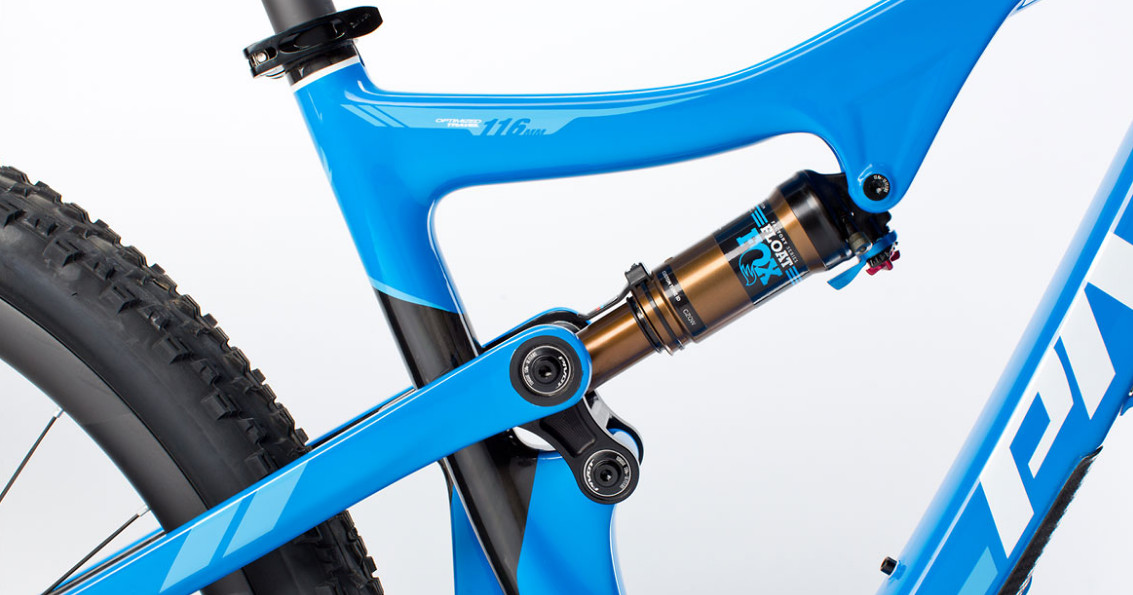



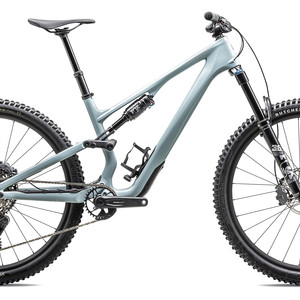

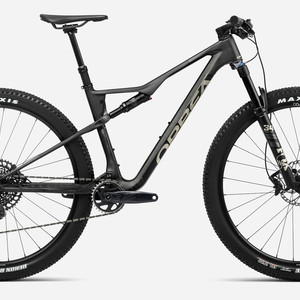

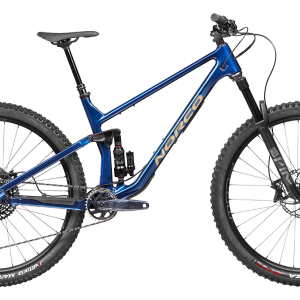

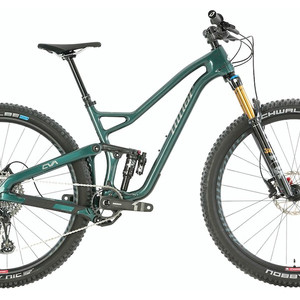







7 comments
Post a reply to: 2016 Test Sessions: Pivot Mach 429 Trail XT/XTR Pro 1x